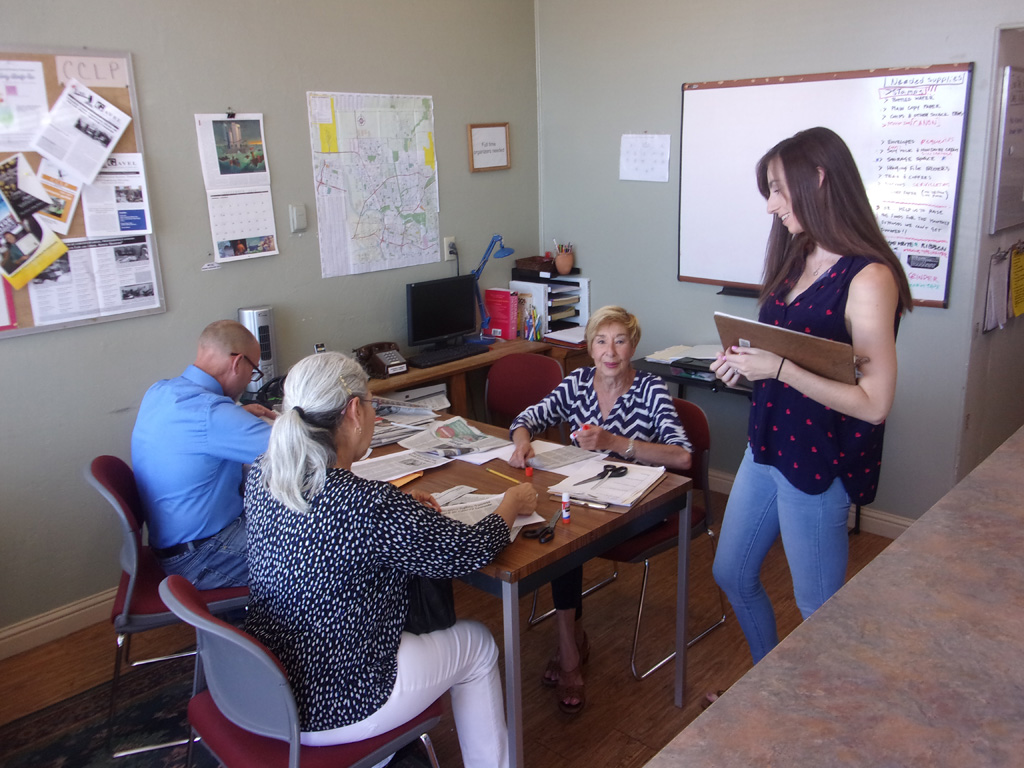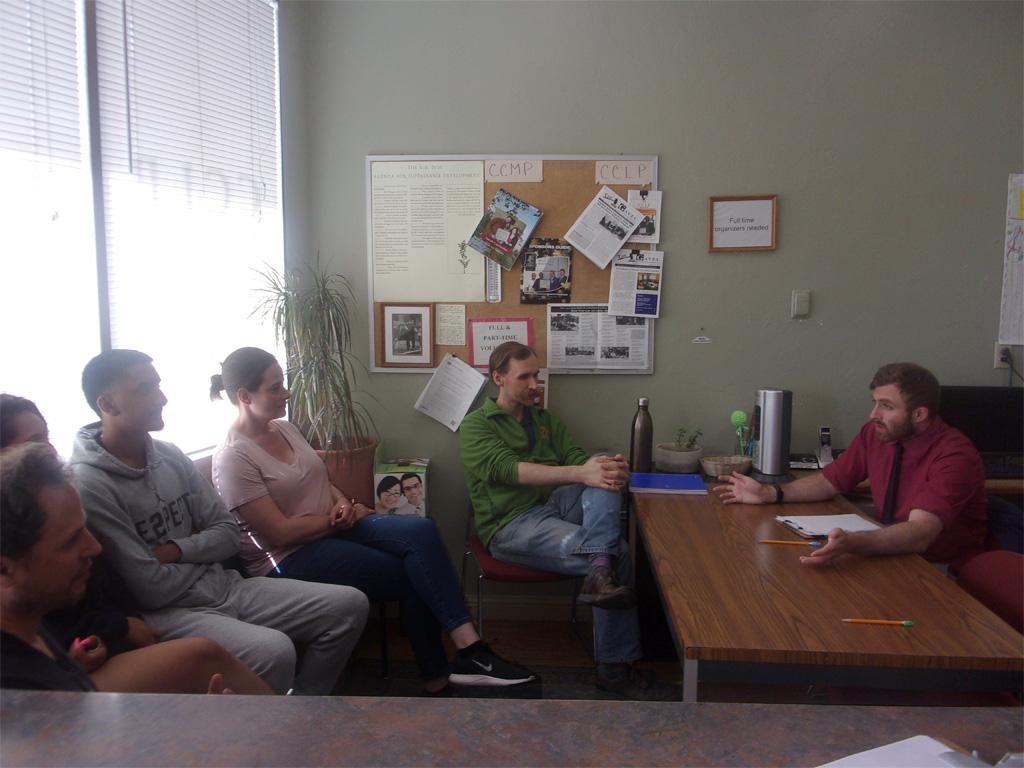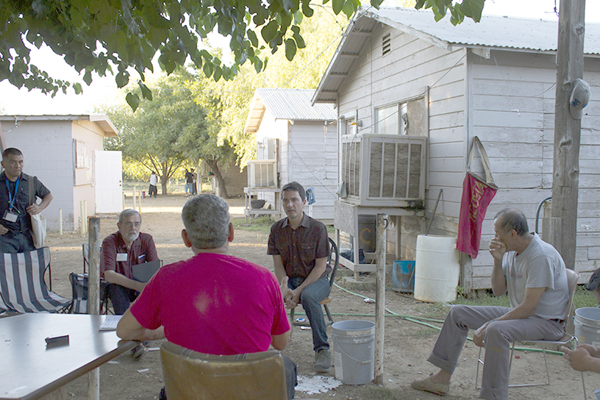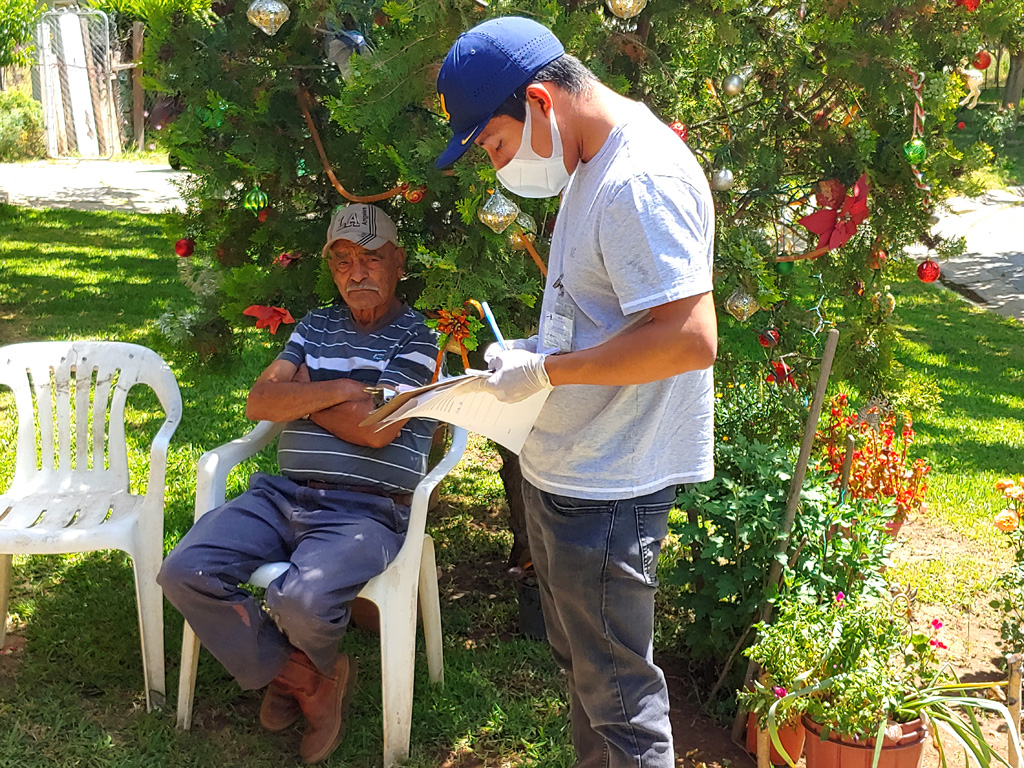About
CCLP
Established 1976
In 1976, in Sacramento, California, local legal professionals, students and others volunteered their time and skills to form the first CCLP. They came together to address the needs of low-income service workers who had launched a grass-roots organizing effort to improve conditions of in-home care workers, the elderly and disabled and the working poor.

 Volunteer attorneys, who had been active in or supportive of the organizing efforts, took the County of Sacramento to court to enforce the County’s promises of better wages and benefits for the workers and more hours of care for the low-income elderly, blind and disabled recipients of in-home services care. Realizing that more would be needed than a few individual attorneys to prosecute the case — that an organization would be required, capable of fighting to uphold the right of domestic workers to organize — they formed CCLP.
Volunteer attorneys, who had been active in or supportive of the organizing efforts, took the County of Sacramento to court to enforce the County’s promises of better wages and benefits for the workers and more hours of care for the low-income elderly, blind and disabled recipients of in-home services care. Realizing that more would be needed than a few individual attorneys to prosecute the case — that an organization would be required, capable of fighting to uphold the right of domestic workers to organize — they formed CCLP.
 CCLP’s interests lie within the expanding, changing and often explosive questions in the field of law for low-income workers. CCLP has conducted cases that form collective action in the interest of the membership of organizations of low-income workers and can attract people to the organization to fight for those legal demands versus focusing solely on individual service.
CCLP’s interests lie within the expanding, changing and often explosive questions in the field of law for low-income workers. CCLP has conducted cases that form collective action in the interest of the membership of organizations of low-income workers and can attract people to the organization to fight for those legal demands versus focusing solely on individual service.
Of note, from 1996 to 2005, working in conjunction with farm worker organizations, CCLP’s volunteer attorneys with the assistance of hundreds of volunteer organizers and advocates won a class action suit against the State of California on behalf of thousands of migrant farm workers whose rents on  government-subsidized migrant camps were doubled illegally by the State of California in the late 90s. Through the participation of legal professionals, businesses, religious institutions, students, workers and legislators, CCLP and the farm worker drives were successful in winning back the rent overcharges plus interest for the majority of migrant farm workers affected, as well as halting an additional rent increase the State sought to implement in 2003. CCLP and the farm worker class representatives then agreed to dedicate the remaining monies from the settlement to improvements on the camps, dictated by the farm workers themselves. The biggest gain from this campaign was the development of farm worker leadership through the struggle.
government-subsidized migrant camps were doubled illegally by the State of California in the late 90s. Through the participation of legal professionals, businesses, religious institutions, students, workers and legislators, CCLP and the farm worker drives were successful in winning back the rent overcharges plus interest for the majority of migrant farm workers affected, as well as halting an additional rent increase the State sought to implement in 2003. CCLP and the farm worker class representatives then agreed to dedicate the remaining monies from the settlement to improvements on the camps, dictated by the farm workers themselves. The biggest gain from this campaign was the development of farm worker leadership through the struggle.
CCLP believes closing the distance betwe en the law and justice in this country requires as a starting point the fight for living wage jobs, which would permit workers to meet their needs and purchase access to the courts purportedly available to all within our legal system, but currently denied to those who cannot afford it.
en the law and justice in this country requires as a starting point the fight for living wage jobs, which would permit workers to meet their needs and purchase access to the courts purportedly available to all within our legal system, but currently denied to those who cannot afford it.
Quick Links
Contact Us
-
3714 Marysville Blvd.
Sacramento, CA 95838 - Phone: (916) 925-7994


